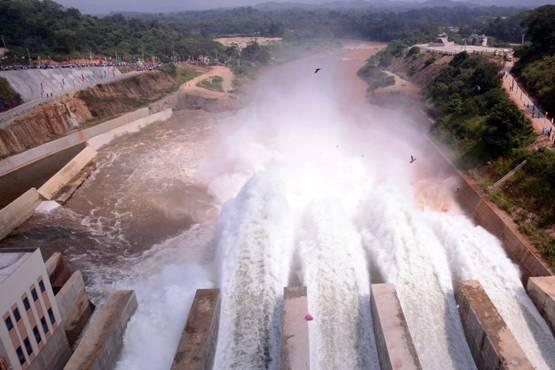Abstract: Global Times on Sunday published an article China needs to keep ODI-related risks under control, which was compiled based on a report by Beijing-based private strategic think tank Anbound. The article said that with its outbound investment in countries along the routes of the Belt and Road initiative (BRI) growing rapidly in recent years, Chinese ODI in BRI economies has drawn increasing criticism over the past two years.
Amid rising anti-globalization sentiment, China's BRI projects and other overseas investment projects face rising political and economic risks. Given the downward pressure on the Chinese economy and the sluggish international economic environment, China's ODI is more exposed to risks.
Therefore, it's even more urgent to strengthen risk management and control of overseas investment projects to avoid overseas risks from being transmitted into the domestic market.
The full text of the article is as follows:
China's outbound investment has increased remarkably since 2008. As of the end of 2017, the nation's cumulative outbound direct investment (ODI) exceeded 1.8 trillion U. S. dollars in 189 countries and regions, accounting for 5.9 percent of the global total, Ministry of Commerce statistics show.
Investment in countries along the routes of the Belt and Road initiative (BRI) has grown rapidly in recent years. According to the National Bureau of Statistics, from 2014 to 2017, China's ODI in BRI economies totaled 64.64 billion U. S. dollars, with annual growth of 6.9 percent.
As of the end of June this year, the figure had risen to 70 billion U. S. dollars. Total merchandise trade between China and these markets amounted to more than 5 trillion U. S. dollars.
Chinese ODI in BRI economies has drawn increasing criticism over the past two years. Here are four major views.
First, Indian scholar Brahma Chellaney proposed the "creditor imperialism" theory in an article dated December 20, 2017, which accused China of becoming a "new imperial giant" as countries like Sri Lanka and Djibouti had to give up some of their sovereignty to China when they were unable to repay loans.
Second, some well-educated "elites" have contended that most aid will eventually flow into the pockets of a few corrupt politicians, regardless of where the money came from.
Third, some observers have expressed the view that Chinese investment may bring low-quality or substandard manufacturing to Africa. This may have something to do with the overseas behavior of some Chinese companies and the lack of regulatory standards in African countries.
Fourth, there has been a view in some quarters that China's ODI should be balanced with its own domestic economic development. The country's per capita GDP remains relatively low, and regional differences and wealth disparities persist. Even as China accelerates its ODI and foreign assistance, it has many challenges of its own including poverty alleviation and getting more children into the educational system.
These critics are obviously biased. Some of China's investments in BRI markets, such as infrastructure projects in Africa and South Asia, are actually public goods that developed countries are unwilling to provide. Chinese investment is often mistaken as a tool to exchange public goods for greater global influence.
China isn't the only country that has invested in BRI economies. During periods when interest rates were low, private investors from Europe and the US also saw the potential for better returns in Africa and increased lending there. However, due to prejudice, the criticism and opposition of developed countries and some recipient countries are becoming political risks for China's BRI investment.
China also needs to be vigilant about economic risk in BRI investment. A recent South China Morning Post report cited the head of China Export & Credit Insurance Corp (Sinosure) as saying that the planning behind many of China's major overseas infrastructure projects was "downright inadequate," which may lead to huge financial losses.
For instance, the 4-billion-U. S.-dollars Addis Ababa-Djibouti freight railway, Africa's first cross-country electric railway, is being underutilized due to electricity shortages. As a result, Sinosure will post a loss of nearly 1 billion U. S. dollars on the project. There are similar failures, such as sugar refineries that are short of sugar beet supplies and underused railways in Latin America.
These cases show that amid rising anti-globalization sentiment, China's BRI projects and other overseas investment projects face rising political and economic risks. Given the downward pressure on the Chinese economy and the sluggish international economic environment, China's ODI is more exposed to risks.
At a time like this, it's even more urgent to strengthen risk management and control of overseas investment projects to avoid overseas risks from being transmitted into the domestic market.




 A single purchase
A single purchase









